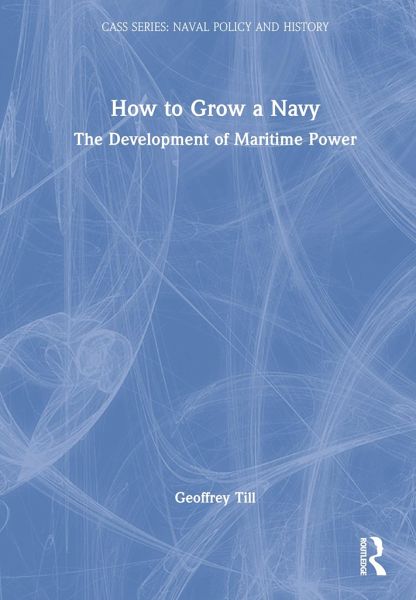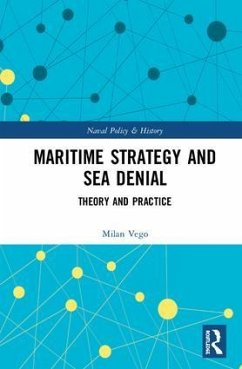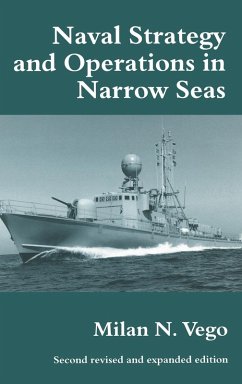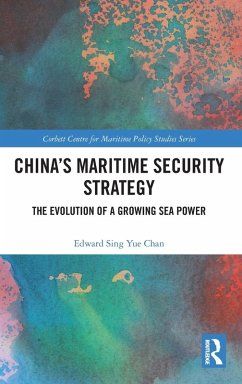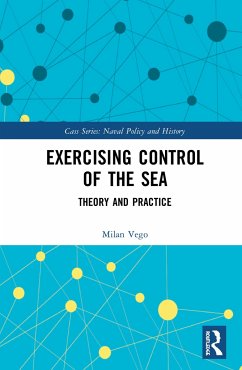** Winner of 2023 Commodore Sam Bateman Book Prize of the Australian Naval Institute**
'How To Grow A Navy is a wonderfully original and erudite work of naval history and advocacy. Sweeping across the centuries to pick evidence for his arguments from the maritime story of Ancient Athens to that of the Vikings, the pre-modern Naval Powers of Asia, the Spanish and the Dutch, to the Royal Navy, the U.S.Navy and the sea empires of the future, Geoffrey Till makes the case again and again for why naval force counts. And he does this with a lightness and surety of touch, a clarity of exposition, and a firm grasp of his subject. Far too often, and with far less reason, are other books on military and naval themes recommended to
policy-makers. This book really deserves to be read by those states who possess a navy, and even more by those who would like to grow one.'
Paul Kennedy, Yale University, USA, author of The Rise and Fall of the Great Powers'Professor Geoffrey Till skilfully derives concepts for building and sustaining a navy as he examines the exercise of sea power over a large historical and geographical canvas. A ''must read'' for practitioners from navies, large and small, in order to draw useful lessons and avoid pitfalls from the rich trove of case studies.'
Admiral (Retd) Nirmal Verma, former Chief of Naval Staff, Indian Navy and former High Commissioner of India to Canada'In this thoughtful and wide-ranging analysis, Geoff Till explores the sources and character of maritime ascendency and its relationship to national power and influence. In casting a broad net from ancient Athens to an emergent China in the 21
st century, Till illuminates the interconnectedness of national culture and maritime supremacy with lessons that are both historic and immediate.'
Craig L. Symonds, author of World War II at Sea'Professor Till's latest study into the enduring dynamics and drivers of maritime power through history, and how navies develop, is an important and timely addition to the body of analysis on the contemporary maritime domain. It needs to be read and absorbed by all those seeking to understand and influence the sea change now underway in the global maritime arena, not least modern China's maritime trajectory, and by those national policymakers aiming to grow or rebuild their own navies.'
Nick Childs, Senior Fellow for Naval Forces and Maritime Security'Speaking from real-world strategy formulation experience, Geoff Till's prescription is spot on. He correctly argues that naval forces require, first and foremost, a clear explanation of purpose to justify national funding-a frequently overlooked and surprisingly misunderstood principle. In this essential volume, Till shows how governments and navies can build, maintain or revive their maritime forces for the demands of the current maritime century.'
Bruce B. Stubbs, SES, Director Navy Strategy and Strategic Concepts, The Pentagon, Washington, DC'
How to Grow a Navy analyses the complex and sometimes irreconcilable problems of creating, maintaining and operating naval forces in an extremely clear and effective way. The author's deep expertise in maritime strategy and naval history, as well as his global reach and long experience of close interactions with the world's navies, big and small, give him a special authority. This apparently arcane subject is in fact a critical element of not only defence strategies but national security strategies as a whole.'
Rear Admiral James Goldrick, Royal Australian Navy (ret)'Professor Geoffrey Till's understanding of maritime power is essential reading and has inspired navy and coast guard leaders around the world to build naval forces for cooperation and security, providing prosperity and safety for their countries. Through history he asks the question: why do nations need a navy? In today's "blue century", the sea remains important for almost any country's security and prosperity and the quest for the blue commons will be a "heritage for all" or increasingly a frontier in great power competition.'
Lars Saunes, Professor/Rear Admiral (ret) Chief of the Royal Norwegian Navy'
How to Grow a Navy is a landmark work. Its principles are applicable to virtually all naval and related maritime capabilities set against national security priorities. Its readership should include navy, government, and industry practitioners. It is most highly recommended.'
Tim Coyle, Australian Naval Institute'Geoffrey TIll offers a timely and broad-ranging examination of the development of maritime power. ...a much-needed addition to the literature on the subject.'
Sidharth Kaushal,
The RUSI Journal'
How to Grow a Navy requires investment in time and attention to study, but its output to the reader in knowledge and understanding will be considerable.'
James Bosbotinis,
The Naval Review